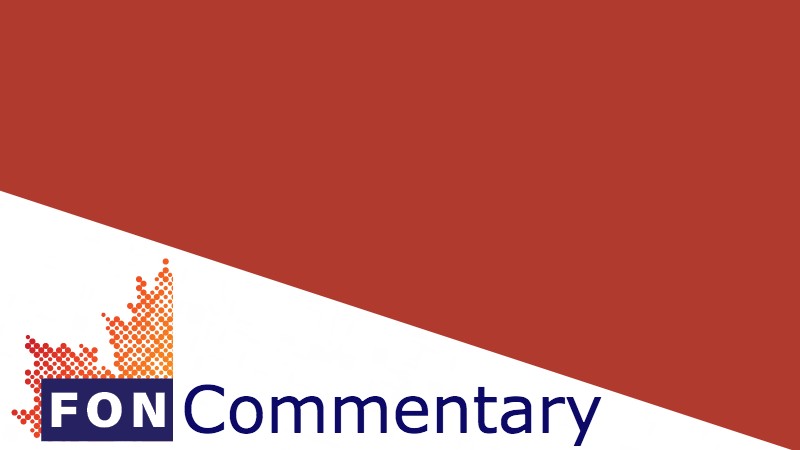Tag: Provincial Governments
Provincial Debt Sustainability in Canada: Demographics, Federal Transfers, and COVID-19
Trevor Tombe, Canadian Tax Journal (2020; 68(4)) Download Paper Paper Citation Tombe, Trevor (2020), “Provincial Debt Sustainability in Canada: Demographics, Federal Transfers, and COVID-19”, Canadian […]
Making the Best of It: Options for Carbon levy Revenue in Alberta
Recently, the Trudeau government announced it would increase the federal backstop carbon levy to $170 per tonne between now and 2030. This backgrounder considers options for fiscal policy reform in Alberta that would be made possible by the provincial government repatriating the full amount of the carbon levy (most of which is now collected by Ottawa and distributed to Albertans in lump sum transfers) while also instituting a harmonized sales tax. These options include almost entirely closing the province’s “fiscal gap” and thus essentially solving its current fiscal problems or eliminating both personal and corporate income taxes, thus creating a more economically efficient and easily understood “tax advantage” than Alberta has ever enjoyed in the past.
The Fiscal Wages of Sin
Provincial governments across Canada face a conflict of interest surrounding the policy treatment of alcohol, tobacco and gambling. On the one hand, all provinces derive substantial revenues from “sin taxes” or from providing these goods and services through government monopolies. These revenues flow into consolidated revenue funds for the year they are collected and so governments are reliant on them to fund current programs. On the other hand, governments have a mandate to promote public health, all of which are negatively affected by alcohol, tobacco and gambling addictions. This commentary explores the conflict of interest surrounding sin taxes. It also considers policy proposals for setting aside a non-trivial share of all sin tax revenue in a special fund designed to generate a lasting stream of revenue that can be used to finance social support projects an initiatives.
Highlights of interprovincial tax comparisons: Bilan de la fiscalité au Québec 2021 Edition
The first part of this 2021 edition of the Bilan de la fiscalité au Québec presents the tax announcements made by the Québec and federal governments, and by those of the other provinces, since the previous edition of the report. The next two sections compare Québec against the other Canadian provinces in terms of taxation. The fourth section presents an overview of tax expenditures in Québec and evidences the choices made regarding the different sources of tax revenues. Then, two sections examine taxation from different angles, namely, households (net tax burden) and individuals (profile of Québec taxpayers). Finally, the last section looks at various indicators of income inequality and how governments reduce inequality through taxation.
Fiscal Risks and Government Debt in Canada: The Implications of Interest Rate and Growth Rate Volatility
This commentary examines recent differences in growth rates and interest rates at the federal and provincial levels in order to estimate the future paths of public-sector debts. The results provide a novel perspective on a recurring theme in Canada’s debt sustainability debates—namely, that Ottawa is in a better position than most provinces to stabilize the debt-to-GDP ratio.
Tax, Spend, Repeat: 55 Years of Public Finance Data for Canada
Today, Finances of the Nation releases an updated and expanded version of its Government Revenue, Expenditure, Assets and Liabilities (REAL) data. Covering 55 fiscal years from 1965/66 to 2019/20, the REAL data give a detailed picture of the finances of federal, provincial, and territorial governments in Canada.
Ontario’s Public Finances: Diagnosis and Prescription
Ontario recently published its 2020 budget, and it contained a lot of bad news. The cash deficit will be around $100 billion over the next three years. This commentary examines options for bringing the province back to sustainability by either reducing spending, raising taxes, or some combination of both. The authors discuss the economic and political consequences of each of the available options, and shows that there are no easy answers for the Ford government.
Finances of the Nation Research Roundup Number 1 – July 13
This post is the first of a regular series coming to Finances of the Nation which will serve to aggregate selected current research from think tanks, journals and other relevant sources relating to the Finances of the Nation project. This installation covers the federal government’s Economic and Fiscal Snapshot, Alberta’s economic recovery plan and recommendations on policy for the post-pandemic world.
Survey of Provincial and Territorial Budgets, 2013-14
Vivien Morgan, Canadian Tax Journal (2014; 62(3)) Dataset Forthcoming Download Paper Paper Citation Morgan, Vivien (2014), “Survey of Provincial and Territorial Budgets, 2013-14”, Canadian Tax […]









Basic Income or Welfare Reform? A summary of the BC Basic Income Panel Report
On January 28, the BC Expert Panel on Basic Income issued its final report. Media coverage of the report naturally focussed mainly on what the panel did not recommend – a basic income program – but the report offers far more than that.